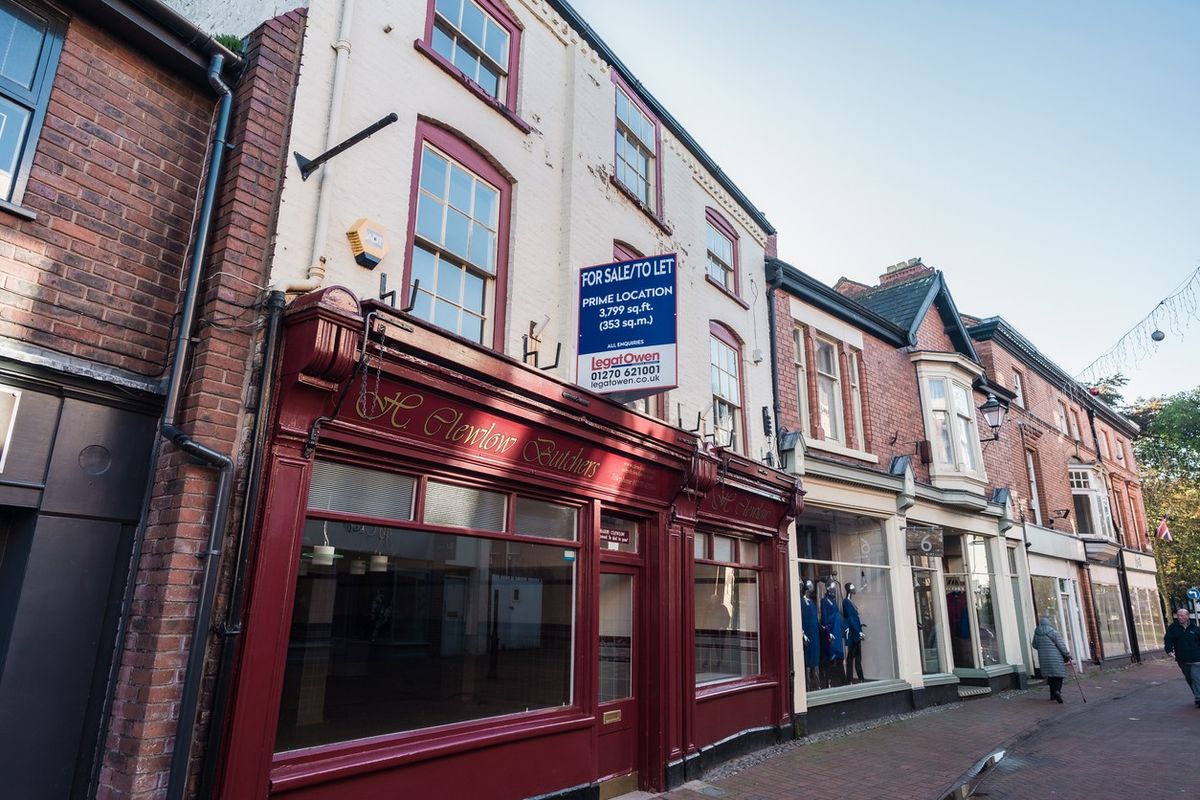England's high streets are transforming into "ghost towns" as essential community services give way to vape shops, betting outlets and takeaways, according to new research that exposes a growing north-south divide in retail provision.
A comprehensive study by Health Equity North, spanning academics from Newcastle University and the University of Manchester, has tracked the dramatic shift in high street composition between 2014 and 2024, revealing an alarming deterioration particularly affecting northern, deprived and coastal communities.
The analysis, which monitored 16 key amenity types using Ordnance Survey data, paints a troubling picture of retail transformation
The research team analysed 16 key amenity types using Ordnance Survey data, and these included “health promoting” amenities such as pharmacies and supermarkets, and “health reducing” amenities such as takeaways, bookmakers, vape shops and alcohol-only outlets.
They also observed the availability of “third spaces”, which are described as “places to go which are not home or work”. These include shopping centres, pubs, department stores and cafes.
The report found that there has been a worrying decline in the quantity of “health promoting” amenities, retail and “third spaces” over the last ten years, with more unhealthy alternatives taking their place, driven by austerity measures, the pandemic, rising living costs, the 2017 “retail apocalypse” and evolving consumer habits.
Vape shops surge as banks vanish
The research uncovered extraordinary changes in High Street composition. Vape shops have exploded by nearly 1,200 per cent across England, with deprived areas now hosting more than three times the number found in affluent neighbourhoods. Meanwhile, traditional banking infrastructure has collapsed, with bank and building society numbers falling 40 per cent nationally and a staggering 57 per cent in rural areas.
Pharmacies have declined by 20 per cent in England's most deprived areas compared to 13 per cent in the least deprived, whilst takeaway outlets have increased by 24 per cent nationally and 30 per cent in deprived communities. Perhaps most concerning for vulnerable populations, public toilet provision has dropped 38 per cent in deprived areas against a 25 per cent national average.
Supermarkets have also decreased by 22 per cent in deprived areas – compared to a national average decrease of 10 per cent.
North bears brunt of decline
Regional analysis reveals the North is disproportionately affected by these negative trends. Northern communities now face 12.8 unhealthy takeaway outlets per 10,000 residents compared to 8.9 in the South, with takeaway growth running at 31 per cent versus 18 per cent respectively.
The North also hosts twice as many vape shops as southern areas and has experienced a 32 per cent reduction in public toilets compared to 19 per cent in the South. Supermarket provision tells a similar story, declining 23 per cent in Yorkshire and the Humber and 14 per cent in the North East and North West, whilst southern areas saw only a 5 per cent reduction.
Department store performance highlights the growing inequality. Whilst the South enjoyed a 12 per cent increase in department stores, the North suffered an 11 per cent decline. The pandemic recovery has been particularly uneven, with the most deprived areas seeing department store numbers fall 32 per cent, whilst the least deprived areas experienced an 81 per cent increase.
Coastal areas face additional challenges, with nearly double the concentration of pawnbrokers compared to inland locations, alongside elevated numbers of betting shops. These communities, already grappling with economic disadvantage and poorer health outcomes, are seeing their high streets become dominated by businesses that may exacerbate existing social problems.
Urgent government action needed
The report has called for immediate government intervention to halt the deterioration of high street environments. Their recommendations focus on empowering local authorities to better regulate unhealthy amenities, particularly in vulnerable areas.
Key proposals include enhanced regulatory powers for councils to control the proliferation of takeaways, off-licences, vape shops and bookmakers, alongside incentives to establish and maintain "third spaces" such as pubs, community centres and libraries where residents can gather.
The report also advocates significant investment in high street infrastructure, including seating areas, public toilets and pedestrianised zones to boost footfall and create more welcoming environments.
“People in deprived areas and in the North are already facing worse outcomes. The sharp increase in fast food outlets, vape shops, bookmakers and other health-reducing amenities in their towns and cities adds a further risk to their health, and could make the gap between North and South even greater,” Dr Luke Munford, academic co-director at Health Equity North and senior lecturer in health economics at the University of Manchester, said.
“We believe that urgent action is needed to reverse this trend. Local authorities should be empowered to regulate unhealthy amenities, and incentivise places that offer vital services and help communities to thrive.”
Central to the recommendations is greater community involvement in high street planning decisions, with resources directed towards areas experiencing the most severe decline. The approach recognises that successful high street regeneration requires adaptation to modern community needs rather than attempting to recreate past retail models.
“We know the government is keen to build a greater sense of community in our towns and cities. Which is why we’re inviting them to commit to helping create more vibrant and social high streets,” said Professor Clare Bambra, academic co-director at Health Equity North and Professor of Public Health at Newcastle University.
“You should be able to walk down a High Street, and feel the uniqueness, culture and identity of that community. Through innovative design, better public transport, and measures that promote people over cars, we can re-think these spaces so they become ‘go-to’s’ rather than ‘ghost towns’.”


